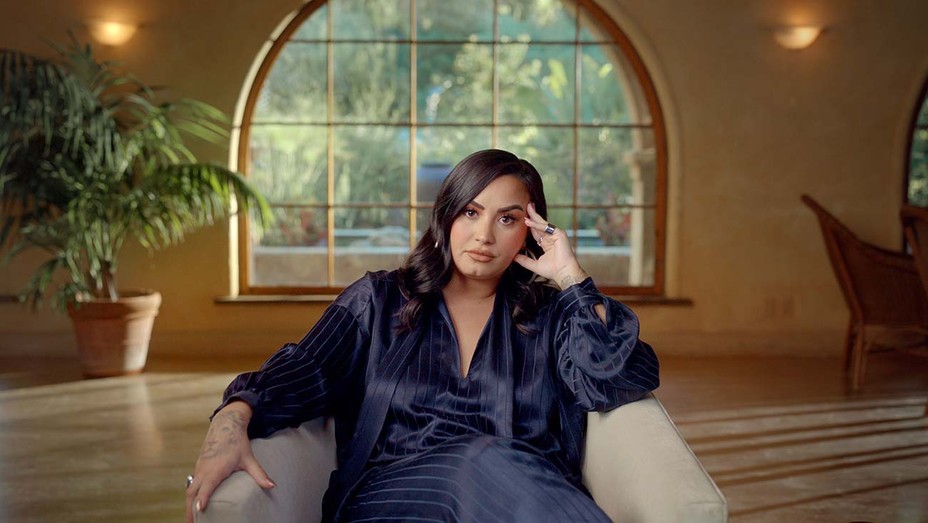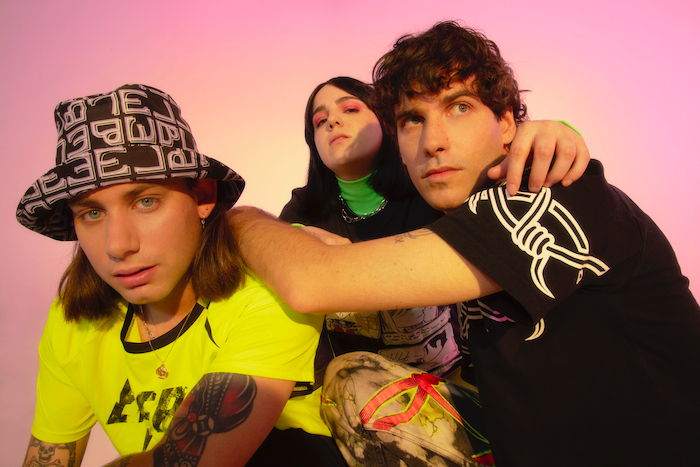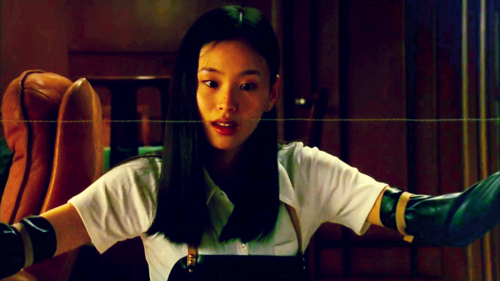At the beginning of Demi Lovato: Dancing With the Devil, there’s a clip that plays from an unreleased documentary chronicling her Tell Me You Love Me World Tour. On a tour stop, her mother says to her over the phone, “Demi, I think this was your best show, and it’s going to get better from here.” That album went six times platinum and had the hit single, “Sorry Not Sorry.” Unfortunately, things did not get better. While she was on tour, Lovato began to experiment with hard drugs to combat how miserable she was feeling. She even speaks about how she felt bad for being a mental health advocate while her own was failing. What would follow would be one of the scariest moments of Lovato’s young life.
On June 15th, 2018, Lovato writes ‘Sober,’ and at that point, she is physically dependent on heroin. The singer/songwriter has chronicled her struggles with drugs and bipolar disorder before in her 2017 documentary, Simply Complicated. On a tour stop at Barclays Center in Brooklyn, Lovato celebrates six years of sobriety. One month after that show, she relapses. Director Michael D. Ratner elects to chronicle the past three years of Lovato’s life in couch style talks from Lovato herself, friends, and family. The YouTube four-part documentary dives into where a lot of traumas begin for the singer at the beginning.
She’s had a turbulent relationship with her father, who was an addict and also abusive towards her mother. Lovato describes the manner in which he died from an overdose and how Father’s Day is synonymous with that event for her. We find out the beginnings of her struggles with eating disorders dating back to when she was taking part in beauty pageants. Even the conditions around her sobriety were means of control by her surrounding team. Lovato has been in the spotlight since she was 14 with Disney, and that comes with challenges. Many of which are unfair for a young teenage girl to uphold. As candidly spoken, all these events felt like a snowball that led her to her overdose.
This documentary speaks honestly about that date, along with illustrations depicting it. Not only from the time that everyone found out, but the actual day and what happened in the hospital. Lovato herself says that she had three strokes, a heart attack, and suffered brain damage. In speaking about this day, it goes further into the residual effects that were felt by her inner circle. For instance, Lovato attended a party that night with former choreographer and friend Dani Vitale. Just because it was somehow implied that she provided the fentanyl-laced oxycodone to her, she lost jobs. Fans sent death threats to her.
This documentary is a way to clear her name, but also show the anguish that all of Lovato’s closest people feel because of her addiction. There’s even a revelation that Lovato was sexually assaulted the same night, coupled with the fact that she lost her virginity the same way. Very tough conversations, even sometimes with Lovato being in the same room as other people occur.
With how raw this documentary is, there’s an instance where it comes at odds with itself. Ratner asks Lovato if she’s completely sober, and she expresses she drinks and smokes weed in moderation. Addiction is a lifelong battle and there’s no one size fits all fix. Elton John later comes on and says that moderation never works in a quest for sobriety. For a lot of younger fans that are watching this documentary, it would be great to explain the complexities a little more. There’s a rhythm that Dance With The Devil settles in where it foregoes further, explaining the newer things and reasoning behind those choices. Celebrities like Christina Aguilera and Will Ferrell say a few words to attest to Lovato’s character and personality. Even though it’s not really in question. Her new manager, Scooter Braun appears towards the latter half. While he speaks about the struggles in her sobriety, his inclusion feels geared towards highlighting her new project.
The end of the documentary (or part IV) sees Lovato enjoying a new type of freedom. She’s fluid in her relationships and allows herself to indulge in things like food that she wasn’t allowed to before. If there’s a triumph to take away, it’s that Lovato has control over her life in a fashion that she didn’t before. Recovery manifests itself in different ways. With this newfound freedom and love for self, we hope to see this continue for years to come. The last question to Lovato is asking why we should believe her this time. Frankly, she says she realized that the high she wants would kill her. Thankfully, she’s here to put that behind her.













